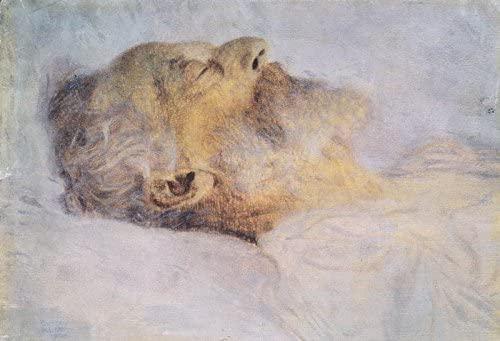Description
Gustav Klimt's painting "Old Man on Deathbed" is a masterpiece of modern art that has captivated art lovers for decades. This artwork is one of Klimt's most moving and emotional works, and is one of the most representative of his artistic style.
The composition of the painting is impressive, with the old man at the center of the image, surrounded by a series of female figures who surround him on his deathbed. The central figure is depicted in great detail, with his wrinkled skin and tired, sad face. The surrounding female figures are dressed in brightly colored robes, creating an interesting contrast to the central figure.
The use of color in the painting is impressive, with a rich and vibrant color palette creating a sense of life and vibrancy in the image. The gold and yellow tones used in the painting are particularly striking, creating a sense of warmth and hope in the image.
The story behind the painting is equally fascinating. Klimt created this work of art in 1918, shortly before his own death. The painting was commissioned by the Austrian government to commemorate the death of Emperor Franz Joseph I, and became one of Klimt's most important works.
Despite its importance, there are many little-known aspects of this painting. For example, Klimt is believed to have used his own father as the model for the painting's central figure. Furthermore, it is known that Klimt worked on the painting for several years, making numerous sketches and studies before creating the final work.

